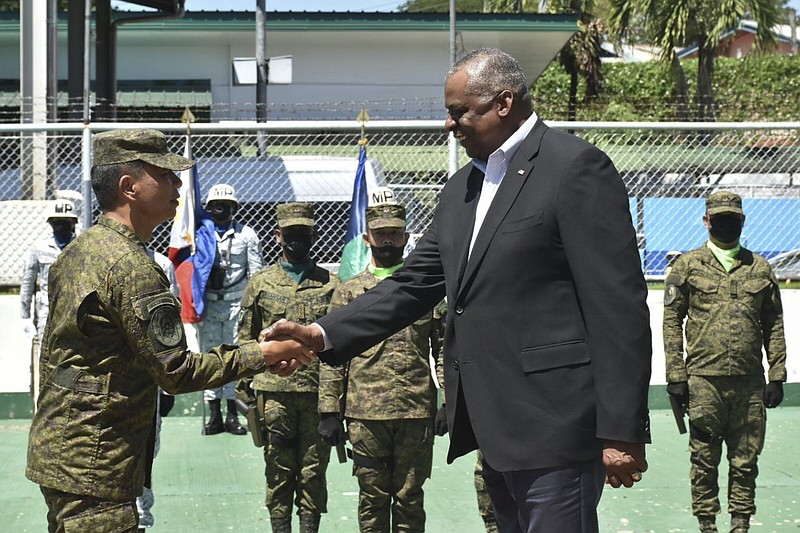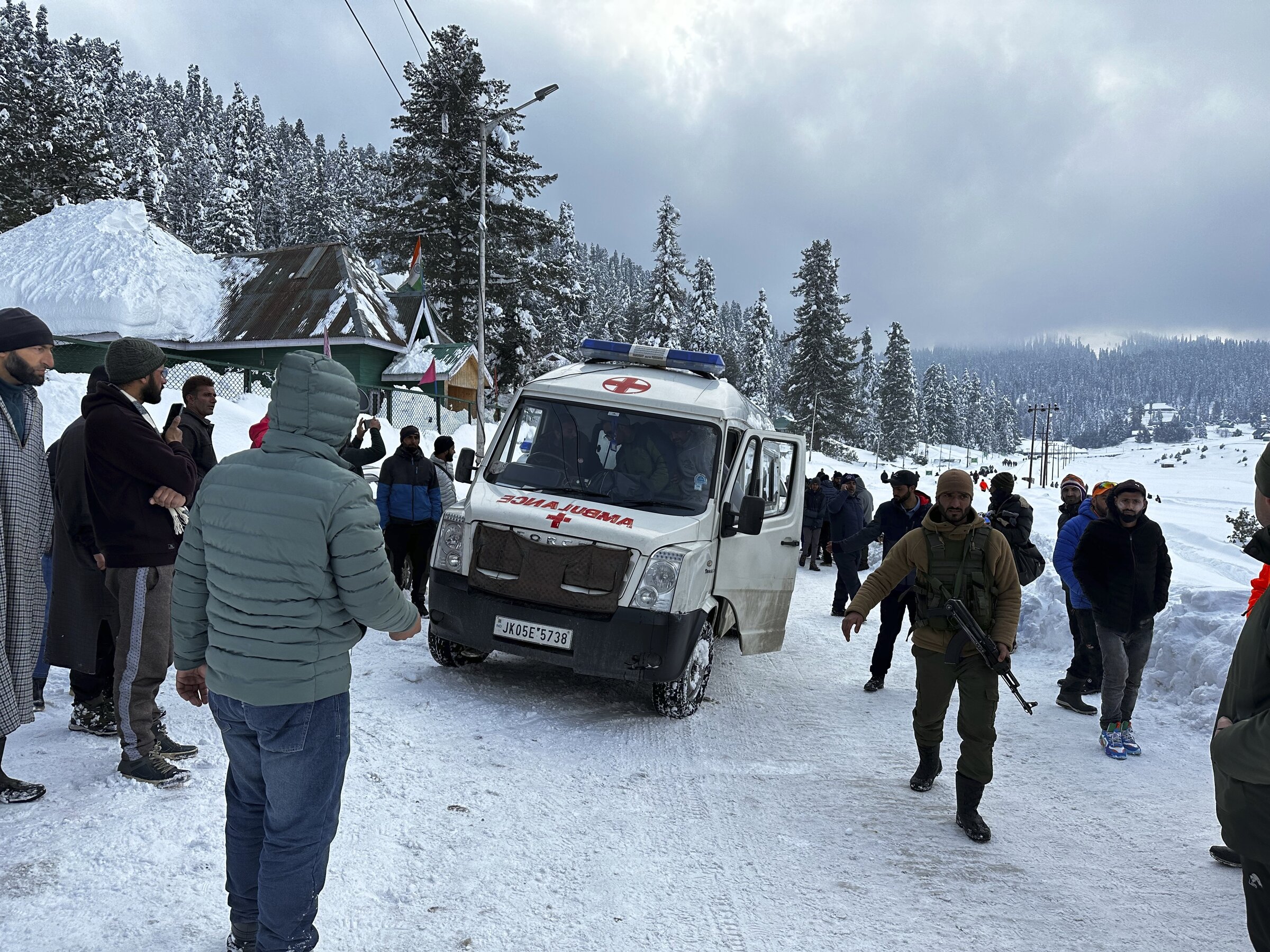U.S., Philippines talks focus on security
MANILA, Philippines — Defense Secretary Lloyd Austin was in the Philippines on Wednesday for talks about deploying U.S. forces and weapons in more Philippine military camps to ramp up deterrence against China’s increasingly aggressive actions toward Taiwan and in the disputed South China Sea.
Austin flew from South Korea, where he said the U.S. would increase its deployment of advanced weapons such as fighter jets and bombers to the Korean Peninsula to bolster joint training with South Korean forces in response to North Korea’s growing nuclear threat.
In the Philippines, Washington’s oldest treaty ally in Asia and a key front in the U.S. battle against terrorism, Austin visited southern Zamboanga city and met Filipino generals and a small contingent of U.S. counterterrorism forces based in a local military camp, regional Philippine military commander Lt. Gen. Roy Galido said. The more than 100 U.S. military personnel have provided intelligence and combat advice for years to Filipino troops battling a decades-long Muslim insurgency, which has considerably eased but remains a key threat.
More recently, U.S. forces have intensified and broadened joint training focusing on combat readiness and disaster response with Filipino troops in the Southeast Asian nation’s western coast, which faces the South China Sea, and in its northern Luzon region across the sea from the Taiwan Strait.
Rocket fired spurs conflict for Israel
TEL AVIV, Israel — Militants fired a rocket into Israel’s south Wednesday, the army said, setting off sirens and raising already heightened tensions under the country’s new ultranationalist government.
Early Thursday, the Israeli military said it started attacking targets in the Gaza Strip in response to rockets. According to local media, Israeli fighter jets struck a militant site in the central Gaza Strip. There were no immediate reports of casualties.
The rocket from the Gaza Strip was intercepted, according to the military. Israel usually responds to rocket fire with air-strikes, raising the possibility of further escalation.
Local residents reported hearing explosions. Israel’s rescue service said it received no reports of injuries except for a 50-year-old woman who slipped and fell while running to a shelter.
The action in Israel’s skies Wednesday comes after Gaza’s ruling Hamas militant group has threatened Israel over the combative stance of National Security Minister Itamar Ben-Gvir, who has promised harsh treatment of Palestinian detainees in Israeli prisons. From the occupied West Bank to the Hamas-ruled Gaza Strip, many Palestinians revere prisoners as heroes for the Palestinian cause.
Ben-Gvir said the new rocket fire from Gaza won’t stop him from implementing his punitive policies against Palestinian detainees. He called for an urgent Security Cabinet meeting to discuss a response.
China, Russia allyship seen as threat
TOKYO — China’s growing assertiveness and collaboration with Russia pose a challenge not only to Asia but also to Europe, NATO Secretary-General Jens Stoltenberg said Wednesday as he sought stronger cooperation and more “friends” for NATO in the Indo-Pacific region.
Stoltenberg said China is increasingly investing in nuclear weapons and long-range missiles without providing transparency or engaging in meaningful dialogue on arms control for atomic weapons, while escalating coercion of its neighbors and threats against Taiwan, the self-ruled island it claims as its own territory.
“The fact that Russia and China are coming closer and the significant investments by China and new advanced military capabilities just underlines that China poses a threat, poses a challenge also to NATO allies,” Stoltenberg told an audience at Keio University in Tokyo. “Security is not regional but global.” “NATO needs to make sure we have friends,” he said. “It is important to work more closely with our partners in the Indo-Pacific.” China is increasingly working with Russia and they lead an “authoritarian pushback” against the rules-based, open and democratic international order, he said.
Stoltenberg said NATO does not regard China as an adversary or seek confrontation, and that the alliance will continue to engage with China in areas of common interest, such as climate change.
Two dead, 21 rescued in avalanche
SRINAGAR, India — Two Polish skiers died in an avalanche at a Himalayan ski resort in Indian-controlled Kashmir on Wednesday and 21 people were rescued, police said.
A total of 21 foreigners and their two Kashmiri guides were caught in a massive avalanche and buried under the snow as they were skiing high in the mountains near the tourist town of Gulmarg, according to a police statement.
The Pirpanjal mountain range in the western Himalayas is a popular skiing destination for both Indians and foreigners.
Avalanches and landslides are common in Kashmir and have caused heavy death tolls for the Indian and Pakistani armies camped near the mountainous and forested militarized Line of Control that divides Kashmir between the nuclear-armed rivals.


